Review of Junoon
Introduction
Ok, I`m reading Junoon, but what I hear is Frank Butcher yelling out `Janine!` It`s a facile statement to be sure, but it`s indicative of how poorly versed I am with the cinema of the Indian subcontinent. In the last ten years, I`ve probably seen a grand total of two films from that industry. I wasn`t always this way, in my childhood I was a fan of seventies and eighties Bollywood blockbusters, and had quite a tolerance for manipulative melodrama, countless costume changes and big musical numbers. Since Junoon was made in 1978, you would think that it would at least be a film that I`d know about. Alas, just as I once considered all of Hong Kong cinema to encompass the oeuvre of Jackie Chan, my fascination with Indian cinema never extended beyond the films of Amitabh Bachchan. But there is more to Bollywood than just `Lumboo`, and if you want something other than just your average three-hour potboiler with regurgitated histrionic plots, then it is well worth examining Junoon as a piece of intelligent and thoughtful cinema.
Prism Leisure release Junoon under their Odyssey Quest label as part of the Shashi Kapoor Collection, along with Utsav and 36 Chowringhee Lane. Somewhat more tenuous is the screen announcing it as part of the Merchant Ivory Collection, as while Shashi Kapoor has been in many Merchant Ivory Productions, Junoon was produced by his own company, and is as far removed from a Merchant Ivory film as you can get.
Before the British Raj, the East India Company administered the Indian subcontinent, economic rule bolstered by British military power. In 1857, following the Mutiny, the Indian states briefly threw off the foreign yoke as the rebellion spread. Foreigners were singled out and persecuted, as the people fought to regain their independence. It was a brief rebellion, swiftly put down, but this story takes place in those few months of upheaval. Junoon, meaning obsessive love is based on a true story, retold as a novel named A Flight Of Pigeons by Ruskin Bond. It begins a couple of months after the mutiny, as the upheaval spreads. The British are confident in their security, and aren`t expecting to be attacked. The assault when it comes is brutal and unmerciful, as a congregation is slaughtered in church while they worship. One of the few survivors of this is the Labadoor family. Ruth was with her father in church when it happened and watched him cut down. She escapes and rejoins her mother Mariam and her grandmother, and together they find refuge with a sympathetic Hindu moneylender. It isn`t long before they are discovered and captured by Javed Khan. It is mostly the Muslim community that has been behind the rebellion in that region, but Javed`s motives are far from malicious. He has observed Ruth from afar for a long time, and has fallen in love with her. He offers to keep the family safe if Mariam will give her consent to a wedding between him and Ruth. His first wife Firdaus is horrified at this turn of events, Mariam refuses and Ruth is just plain terrified. While Javed nurses his obsession, the tide of events turns against the rebels as the British counterattack. His friends and family accuse him of losing his senses over the British girl, of neglecting his responsibilities to family and country, Mariam stubbornly refuses to countenance a wedding, and his own feelings cause him to behave more and more irrationally.
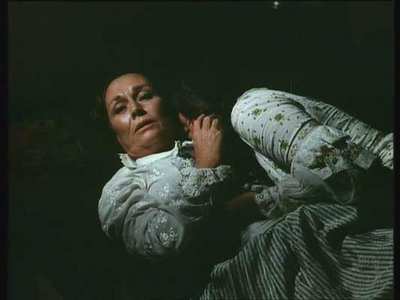
Video
A 4:3 transfer that is adequate. It hasn`t really stood the test of time too well, with print damage and flicker that gets quite problematic on occasions. The difference in exposure between frames is startling on occasion, stunningly overexposed one instant, then dark to the point of indistinctness. Black levels tend towards the grey, and there is the occasional touch of moiré. Still, the film remains watchable, and is certainly better than the old VHS.
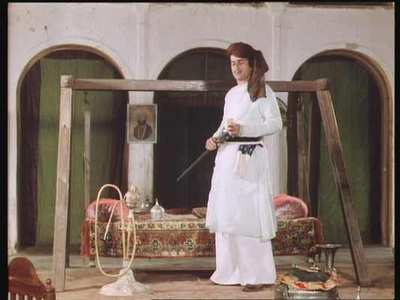
Audio
The dialogue is clear throughout with this determinedly mono soundtrack. This is an atypical Bollywood film, in that the way the songs are presented is more akin to a Western film. There is either a story reason for the characters to be singing, as in the Qawwalli at the start of the film, or the songs are used as incidental music rather than having the characters bursting into song at the drop of a sword.
My occasional attempts at Hindi have resulted in embarrassment, and I only know one word of Urdu to mangle. I was eminently grateful for the presence of subtitles for the dialogue in these two languages. More able speakers will lament that they are of the burnt in type, presented as grey rectangular captions with white text of the sort associated with late night foreign films on Channel 4 back in the eighties. The English dialogue goes by without subtitles.
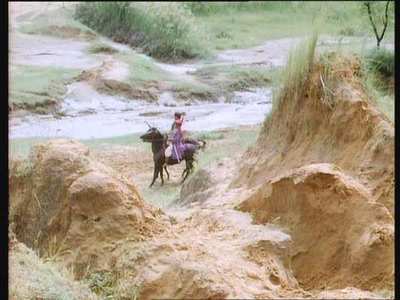
Features
The disc begins with those godawful piracy ads, but fortunately they can be skipped. There are several pages of text on this disc, providing background to the film, cast biographies and a credits list. More substantial is a brief interview with the film`s star and producer Shashi Kapoor. He talks about both his jobs here, it was the first film he produced, he mentions his fascination with the subject and period, and adds some detail about the making of, pretty good for just 9 minutes.
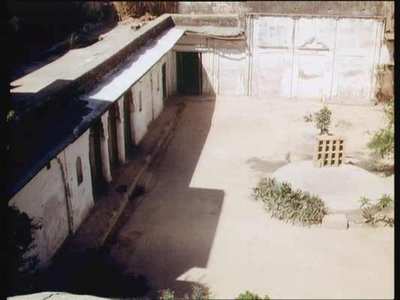
Conclusion
Junoon is not your typical Bollywood movie. It`s relatively short for one thing, just edging over the two-hour mark, and its narrative lacks the flourish and glamour of the usual song and dance extravaganza. The story is quite different, the period setting adds a level of realism and grit, and the focus on obsession and desire is handled with a more Western sensibility. The days of the Mughal Empire were not too distant at this point, and it is interesting seeing the dominant position of Muslims in this society. The rebellion is less about freedom than it is about reclaiming past glories. Junoon does have a rather independent outlook when compared to the rest of mainstream Indian cinema of the time, but with its Bollywood budget and production values makes for a more epic experience on screen. While it never really approached the cutting edge of stunts and effects even for 1978, the implied brutality shown in the massacre and battle sequences is unsettling, but exceeded by Ruth`s nightmares following the death of her father. There is a sadism and darkness in this story that does disturb.
For a film about obsession, it does take its time getting to the meat of the story though. Following the Labadoors` escape, they find refuge with Lala Ramjilal, who is sympathetic to their plight. This sequence where they hide from the mobs and attempt to fit in with his family is overlong and a little pointless. It does establish that the situation for the British has changed, that they are now reliant on the very same people they once looked down upon, but this could have been made clear more quickly, and it does mean that the heart of the story takes longer to be realised, and there is less time to explore it. I feel that more of the film should have been spent on Javed`s desire for Ruth, what it did to his wife and how it affected Ruth herself. What we get is satisfactory in terms of relating the story, but the added wait for that moment lessens its impact.
While the film does have a more outward looking sensibility, there were one or two Bollywood clichés that gnawed at me. One was the appearance of the comedy harridan; complete with stained teeth, cracked voice and loud opinions, while the other was some gratuitous melodrama, emotional moments cued by unwarranted orchestration. While required in your standard Hindi film, these moments actually seemed out of place here.
Junoon is a film that accomplishes what it sets out to quite well, telling an interesting story over two and a bit hours. It didn`t quite work for me, it took its time getting to the interesting bit with a somewhat unnecessary diversion, and some more focus on Ruth would have counterbalanced Javed`s story well. The film is showing its age on this disc, but is well worth a look if you want a change from traditional Bollywood.
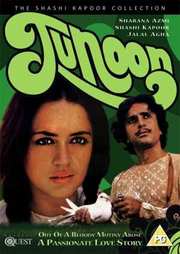





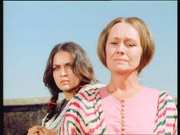
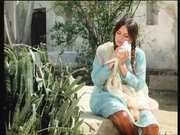
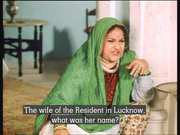
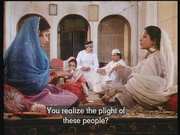
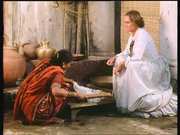
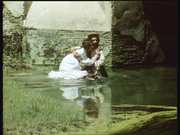

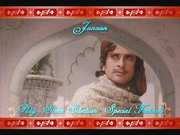
































Your Opinions and Comments
Be the first to post a comment!